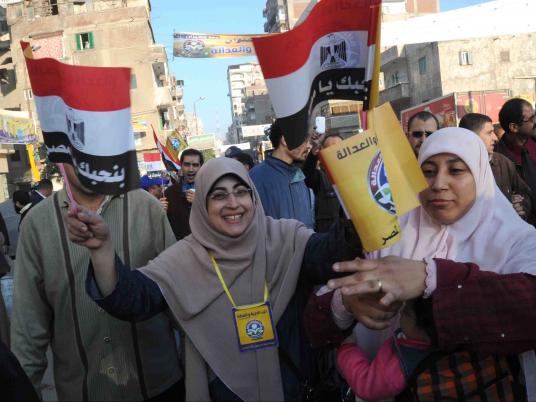
ALEXANDRIA — The day before Egyptians vote for the country's first civilian president, Alexandria voters cannot stop discussing the elections. With feelings of hope mixed with worry, voters continue debating the possible outcomes while hoping that the next president will be able to deliver on promises of economic and social prosperity.
Although the coastal city is known as the hub for the country's Salafi movement and the Muslim Brotherhood, there are powerful trends in the city against the idea of having both an Islamist president and Parliament, as Islamists dominate 70 percent of seats in the legislature.
Caravans supporting the Muslim Brotherhood's contender, Mohamed Morsy, a college professor and former chairman of the Muslim Brotherhood's Freedom and Justice Party, have had a strong presence across Alexandria every day over the past weeks.
But, despite a well-organized and funded campaign, his support in the streets of Alexandria has dwindled, along with support for the Muslim Brotherhood.
"The first thing they did in Parliament was fight over who would be the speaker," said Hassan Osman, a 50 year-old taxi driver. "I can't stomach them anymore since they began to use religion to sell themselves; that is why I am voting for [Amr] Moussa, he's a statesman and he knows how to handle Israel and America," he added.
Many voters say they have learned their lesson when it comes to trusting the Muslim Brotherhood, who is known for flip-flopping on its political decisions.
Ever since the Brotherhood reversed their decision to not field a presidential candidate and nominated Khairat al-Shater, who was later excluded from the presidential race, and after Morsy was nominated as their replacement presidential candidate, more and more people are looking for alternative candidates.
Fearing a rise in Islamism, Marwa el-Zomor, a 19 year-old college student, said she's voting for Abdel Moneim Abouel Fotouh, because he "understands" the inner workings of the Muslim Brotherhood and can stand up to them.
"He can give them a taste of their own medicine," said Zomor, who identifies as a liberal. "If the Brotherhood win, we will go back to the same politics of the NDP," she added, referring to Mubarak's National Democratic Party which dominated Egypt's political scene for the past 30 years.
On the other hand, the former prime minister and aviation minister under Hosni Mubarak, Ahmed Shafiq, has captured the votes of many in the city's jewelry district on France Street, where a huge population of businessmen resent the 25 January uprising.
"You call this a revolution? These kids brought nothing but thuggery and loose security to the streets," said Haj Mohamed, a 60 year-old former officer in the military who now owns a jewelry shop selling gold and diamond products. "I served in the military for years, the Egyptian army is to be respected and Shafiq is a respectable man who will discipline the Brotherhood and bring back security to this country."
While the outcome of the coming presidential elections is unpredictable, the only certainty is that Alexandrians are very much interested in making their voice heard.
The elections are discussed everywhere, whether in microbuses streaming along the Corniche or coffee shops. Men and women argue politics in the street. Some will try to convince each other to vote for anyone but "feloul," or remnants of the old regime, who are known to be Moussa and Shafiq, while others praise Morsy for being a "man of God," who will not rob Egypt of its resources.




